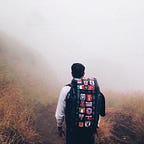 Once referred to as the Saudi Arabia of South America because of the abundance of oil money, Venezuela is now a shadow of its former self, with astronomical inflation and severe food shortages. Just to survive, many Venezuelans are resorting to “crimes of hunger,” resulting in a normalization of theft and a record 73 Venezuelans being murdered every day. An estimated 3 million have fled the country as refugees in recent years.
Once referred to as the Saudi Arabia of South America because of the abundance of oil money, Venezuela is now a shadow of its former self, with astronomical inflation and severe food shortages. Just to survive, many Venezuelans are resorting to “crimes of hunger,” resulting in a normalization of theft and a record 73 Venezuelans being murdered every day. An estimated 3 million have fled the country as refugees in recent years.
As many as a third of Venezuelans are only eating one meal a day, often consisting of cornstarch and water. Many adults have lost up to 40 percent of their body weight.
Venezuela has been teetering on the edge of total collapse for several years now. But things took a turn for the worse on January 23, when the country’s opposition leader Juan Guaidó declared himself to be the interim president.
Guaidó’s dramatic move came after Nicolás Maduro, the country’s current president, was sworn in on January 10, for a second term following an election that many in Venezuela and abroad characterize as corrupt. Since taking power, Maduro has been accused of consolidating power, undermining democracy, and violating human rights.
Hundreds of thousands have taken to the streets to protest Maduro, who still retains the backing of the country’s military. In turn, the government has cracked down on the demonstrators, killing at least 40 protesters, according to the United Nations Human Rights Office.
As Venezuela continues on this downward trajectory, the ghost of Hugo Chavez continues to haunt the country; many see Maduro’s extremely unpopular economic policies as keeping Chavez’s legacy alive.
 II’m a Spanish photojournalist documenting the crisis in Venezuela. I recently spent six weeks photographing the ever-worsening political, economic, and security situation.
II’m a Spanish photojournalist documenting the crisis in Venezuela. I recently spent six weeks photographing the ever-worsening political, economic, and security situation.
The idea for this project came to me after speaking with many of the city’s residents who talked to me openly about stealing in order to put food on the table. I could not believe how common these stories were and the extent to which stealing has become normalized. People talked about it without shame or judgment. Many people told me that stealing can mean the difference between their children eating or not.
It was an extremely difficult assignment with a lot of security concerns. But I was determined to put a human face on the dire situation I was witnessing. Years of economic mismanagement and corruption have plunged millions of former middle-class Venezuelans into poverty. Many of the people I met used to be middle class. They had apartments, houses, and cars. They had children going to university.
And now, they are stealing motorcycles to put food on the table.
To cope, many now rely on rations from the state in the form of CLAP, a government food handout scheme by the Maduro administration, which doubles as propaganda. To receive the CLAP cardboard box — which contains basic rations like rice, flour, and beans — the recipients have to pledge allegiance to the socialist ideals of the administration. It’s also a way for Maduro and his party to essentially buy votes.
But in a sign of how bad things have gotten in recent months, even the government handouts are becoming less frequent. Sometimes a week passes without the rations being distributed.
Since Guaidó declared himself as the interim leader, the situation in the capital remains tense but quiet. Aside from a few demonstrations, the atmosphere seems eerily calm, but there are whispers on the streets. Everybody is afraid and everybody suspects something big will happen soon.
What makes the current standoff between Maduro and Guaidó potentially so dangerous is the fact that each side is desperate in its own way. Maduro and his cronies would be in serious danger for their lives if they were to lose the power that protects them from the fury of the masses. Likewise, Guaidó and his supporters see this as their last attempt for real and meaningful change.
Guaidó’s camp has garnered the support of more than 20 countries, including the United States. It’s going be difficult for the opposition to get another window of opportunity to finally get rid of Maduro and start a new chapter in the country’s history.
However, I’m not optimistic about the coming days. Whatever happens — whether Maduro holds on to power or is deposed — tough days are ahead for a country whose citizens have been brought to their knees.
